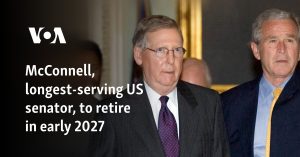The University of California Student Association’s request to block Department of Government Efficiency staffers from accessing student data at the Department of Education was denied Monday by a federal district judge.
The lawsuit, filed earlier this month, accused the department of illegally sharing confidential student data, arguing it violated the 1974 Privacy Act and confidentiality provisions of the Internal Revenue Code by giving DOGE access to records that contain tax information.
But Judge Randolph D. Moss of the District Court for the District of Columbia said there wasn’t an immediate threat, citing testimony from Adam Ramada, a DOGE staffer, who said that he and his team were only assisting the department with auditing for waste, fraud and abuse and that DOGE staffers understood the need to comply with data privacy laws.
“None of those initiatives should involve disclosure of any sensitive, personal information about any UCSA members,” Moss, an Obama appointee, wrote in his ruling. “The future injuries that UCSA’s members fear are, therefore, far from likely, let alone certain and great.”
Other higher education groups have raised concerns about DOGE’s access to education data, as the department’s databases house students’ personal information, including dates of birth, contact information and Social Security numbers. Some student advocates worry the data could be illegally shared with other agencies and used for immigration enforcement. Moss, however, called those harms “entirely conjectural,” saying Ramada had attested that the data was not being used in such ways.
Although the temporary restraining order was denied, the overall lawsuit will continue to work its way through the courts, and other legal challenges are emerging, The Washington Post reported.
A coalition of labor unions, including the American Federation of Teachers, is also suing to block DOGE’s access to the sensitive data. This latest lawsuit argues that agencies—including Education, Labor and Personnel Management—are improperly disclosing the records of millions of Americans in violation of the Privacy Act.








